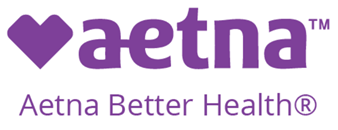Community Health Centers (CHCs) nationwide go the distance—literally—to reach patients with essential services wherever they live. This requires stretching limited resources and forging creative partnerships to deliver essential health services beyond facility walls.
For example, Cass Family Clinic Network has pioneered ways to meet the integrated health care needs of people who reside in the small towns that dot the rural landscape of southwest Michigan.
Recognizing that the brick and mortar CHCs were only serving 40 percent of the eligible population, Cass Family Clinic CEO Joseph Gavan committed to finding the means to bring care to the small towns of 2,000 or less, which he called “health care deserts.”
Barriers don’t discourage us; they inspire our creativity. We’re determined to clear all hurdles because that’s why we’re here. Our goal is to ensure that residents have access to quality health care—no matter where they are.
Cass Family Clinic CEO Joseph Gavan
Leveraging Partnerships for Growth
Funding for the unit came through building collaborative partnerships with the local community and getting creative with the resources available. Gavan first went to the area’s largest health system, Corewell Health, for support in getting a new mobile unit off the ground.
“They were on board, sure enough, they gave me $460,000 over five years,” Gavan said. The organization also sought funding from the Cass County Opioid Settlement Fund, which resulted in $250,000 in funding over five years to support behavioral health and substance use treatment needs through the mobile unit.

With funding support, Cass Family Clinic’s vision to increase access became a reality, in the form of a new 40-foot mobile health unit, with half of the unit dedicated to medical care and half dedicated to behavioral health care.
The result: Patients in underserved areas can receive primary care, sports physicals, blood pressure checks, and flu vaccinations—as well as behavioral health counseling and substance use disorder treatment—all in one visit to the mobile unit.
Mobile Behavioral Health Care Units Reach Rural Patients
The mobile clinic represents integration of care in action: with a medical provider and mental health counselor working in collaboration with a social worker and community health worker to screen patients and respond to their behavioral health and substance use disorder treatment needs.
“We are reaching a population who might not have access to health care at all, or who may be hesitant to go into a clinic to seek care but will come to the mobile unit,” Gavan said. “The health systems need us, too. They see us as a good place for people who would go to the ER if they didn’t have access to the care we provide.”

To advance its mission of reaching people where they are, the Cass Family Clinic mobile unit relies on its strong partnerships with schools, churches, hospitals, and community leaders.
“We actively engage with communities who haven’t engaged with us historically, working to build trust among pastors and congregants,” Gavan said. “Every partnership we build helps make care easier to access for the people who need it most.”
In addition to partnering with faith based communities, the center uses every opportunity to do outreach, attending community fairs, accepting invitations to sponsor events, visiting schools for physicals, and using every opportunity to keep the mobile unit out on the road as a reliable source of services for the community.
Workforce Innovations Plant Seeds for the Future

Cass Family Clinic’s innovation extends beyond the mobile unit itself to workforce innovation. Recognizing the chronic workforce shortages in rural healthcare, the CHC partnered with the county’s school district to train high school students as medical assistants and pharmacy techs. Last year, it launched a summer “greeter” program for local youth who have an interest in learning about the health care field and shadowing staff. Participation in the program doubled by the second year.
With a forward-looking vision, the Cass Family Clinic is also working with the regional health department and has a plan to manage its dental care operation, while also in the planning phase of adding a dental mobile clinic to its offerings.
“We feel a duty to connect people to essential resources for the benefit of the community,” Gavan said. “The need isn’t going away, so neither can we.”
From Michigan’s backroads to other corners of the country, CHCs are rewriting the rules on health care access with innovations that bring primary care and integrated behavioral health services to isolated communities.
With this shared commitment to meeting people where they are—and removing every possible barrier between patients and care—CHCs are filling gaps in mental health care services and saving lives.





